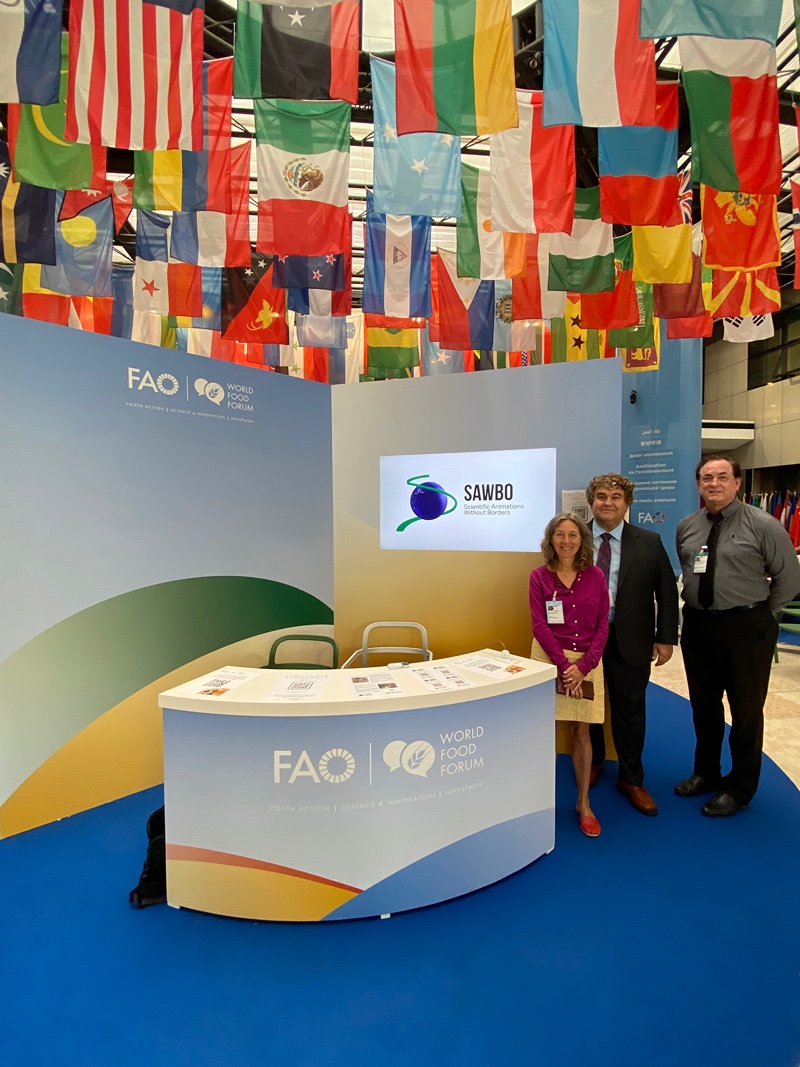Book offers on-the-ground lessons in international development
A new book by a Purdue team that is impacting extension around the world is designed to help others in international development build on the Purdue group’s experience.
The team has taken a systems approach to the challenges facing extension training and education in a global context. They created content on research for development (R4D) innovations in over 150 topics, in numerous languages, and with known use of their content in more than 130 countries. Their number-one lesson: try different strategies, and learn not only from what works but also from what doesn’t. Then, adapt.
The team’s “research for scaling and scaling for research” approach has already yielded over 50 publications and book chapters. This book integrates their experiences.
Gender, Digitalization, and Resilience in International Development: Failing Forward was published in September 2023 as part of Routledge Explorations in Development Studies. The authors are Julia Bello-Bravo, assistant professor of agricultural sciences education and communication; John Medendorp,associate director of the Center for Urban and Industrial Pest Management; postdoctoral researcher Anne Namatsi Lutomia; and Barry Pittendrigh, Osmun Endowed Chair and director of the center.
The book is rooted in their experiences with Purdue-based Scientific Animations Without Borders (SAWBO), which conveys practical extension information in scientifically accurate animations designed for users of all literacy levels. With voiceovers available in over 300 language variants, the animations address topics in agriculture, health, women’s empowerment and many others.
“We know that many people that get these animations have never seen educational information in their own language in their lives,” Bello-Bravo says.

SAWBO materials are free to anyone using them for educational purposes and can be viewed on cell phones, tablets, computers, TVs and overhead projection systems. Since 2011, the program has connected with over 60 million people across more than 100 countries, delivering useful information across cultures, languages, literacy levels and technological divides.
The book is written for people working in international development by a Purdue team that Pittendrigh explains, “is rooted in a structured systems approach that allows for continuous and rapid adaptability — where end users receive gold standard, peer-reviewed knowledge that people of all literacy levels and who speak many different languages can understand. Our goal is to make R4D knowledge highly accessible to all globally at the lowest costs possible.”
“It is also about solving the problem of how we systematically take educational R4D innovations from universities and research centers directly into the hands of end-users globally at scale,” Pittendrigh adds.
The book taps metadata from around the world as well as case studies from Ghana, Kenya, Burkina Faso and Mozambique. “The authors are a multidisciplinary group with more than 100 years of combined work in international development work,” Lutomia says.
Vignettes in the narrative also offer important insight into an often-hidden population, Bello-Bravo says. “When we established this program [SAWBO], the end users were smallholder farmers: people who often lack access to scientifically based information and knowledge; that speak many different languages but maybe not the mainstream languages; and that were living on less than $5 a day,” she says. “This book is giving voice to them.”
“We want practitioners of international development to understand how important it is to reach those low literacy-level, low-resource individuals in society who ultimately are going to be the ones on whom success will be built,” Medendorp says.
The authors borrowed the term “failing forward” for their book title from John Maxwell, an author in organizational leadership. “What it means is that we learn from our mistakes and our experiences in real time,” Medendorp says. “There’s never a continuous line of successes. There are always points at which you fail or things don’t turn out as you’d hoped. The key is not to surrender or give up at the point, but rather to learn from that and to carry it forward,” he says.
Bello-Bravo conducted multiyear, randomly controlled trial experiments on learning gains and adoption of R4D innovations. Her research showed that SAWBO’s animations were highly effective, including an 89% adoption rate for a given technology in a remote region of Mozambique.
“However, now many other groups are scaling SAWBO materials,” she says. “Our recent work has turned to the use of machine learning tools to understand their impact in complex systems. We study and learn from what worked and didn’t work, and the outcomes define our next steps. This is a research strategy grounded in the framework of failing forward.”
The book was written during the pandemic, which disrupted international development efforts worldwide. “We were feeling helpless, but it was also a watershed moment for us that we got this project to work on during COVID, a $1.6 million USAID funding mechanism called SAWBO RAPID,” Lutomia says.
This book is a call to action on engaging with communities moving forward. At its core, this book is about extending the land grant mission in a global context, sharing the knowledge generated by universities and research centers with as many people as possible, and especially with those who are economically or linguistically marginalized and have been traditionally left out of the knowledge highway.
- Barry Pittendrigh, Osmun Endowed Chair and director of the Center for Urban and Industrial Pest Management






